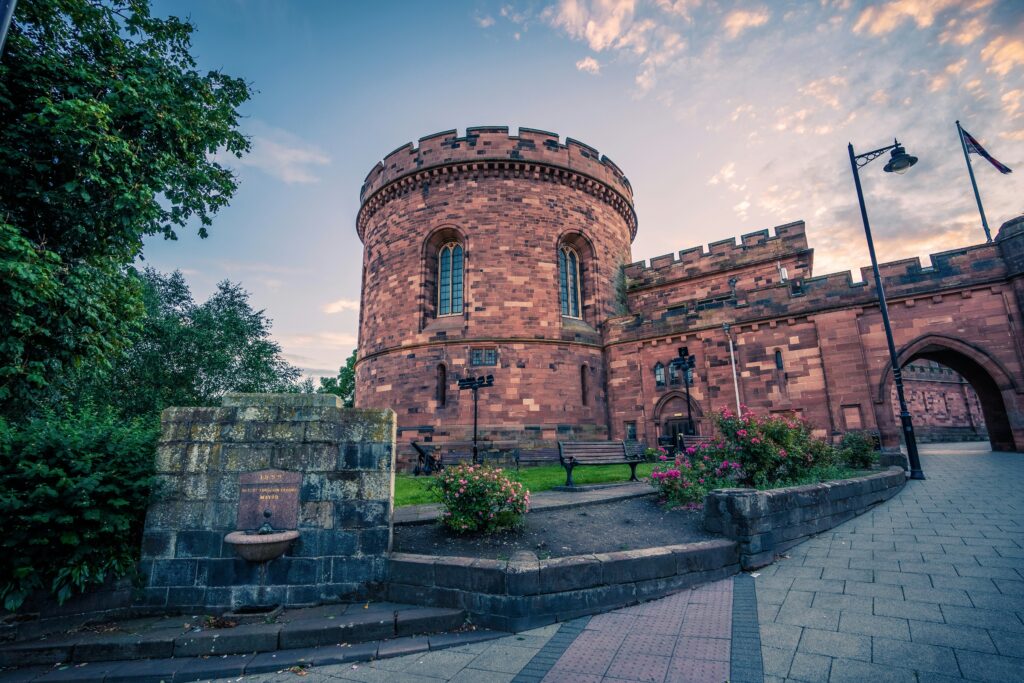
Is Cambridge a Good Place for Landlords?
Cambridge is widely recognised for its prestigious university, booming technology sector, and high quality of life. These factors have contributed to a thriving property market, making the city an attractive option for landlords. However, while there are clear opportunities, potential investors must also navigate certain challenges, including high property prices and local market regulations. In this blog, we explore whether Cambridge is a good place for landlords by analysing rental demand, property prices, potential yields, and market trends.
High Demand for Rental Properties
One of the biggest advantages for landlords in Cambridge is the consistent demand for rental properties. With a strong student population, a growing number of professionals, and an influx of tech and biotech employees, rental properties in the city are highly sought after.
According to recent studies, over 31% of households in Cambridge rent privately, a significant increase from the 26% recorded in 2011. This surge is driven by Cambridge’s booming economy and tech expansion, with major firms like AstraZeneca, Microsoft, and Amazon attracting professionals who prefer renting due to high property prices. Additionally, Cambridge’s global reputation as a university city ensures a steady flow of students seeking accommodation, particularly postgraduates and international students. This consistent demand helps landlords maintain high occupancy rates and minimises vacancy risks.
Rising Rental Prices and Strong Yields
The strong demand for rental properties has led to rising rental prices in Cambridge, benefiting landlords looking for high rental yields. As of early 2025, the average monthly rent for a private rental property in Cambridge has reached £1,755, reflecting an 8.7% increase from the previous year. This trend indicates that landlords can achieve competitive rental yields, particularly in high-demand areas such as the city centre and areas close to major employment hubs.
Cambridge has been named one of the best buy-to-let locations in the UK due to its rental yield potential. Although the city’s property prices are relatively high compared to other regions, landlords can still achieve rental yields of around 4–5% in certain areas. For example, properties in the CB1 and CB4 postcodes tend to offer better returns due to their proximity to the city centre and key transport links.
High Property Prices: A Barrier to Entry
While Cambridge offers attractive rental returns, the high cost of buying property is a major challenge for new landlords. The city’s property prices are significantly higher than the UK average, with some areas commanding prices well above £500,000 for a standard three-bedroom house. This high entry cost can make it difficult for first-time landlords or those with limited capital to invest in the market.
However, despite these high prices, property values in Cambridge have historically appreciated well, making it a strong long-term investment. Investors looking for capital growth as well as rental income may find Cambridge a rewarding market if they are willing to commit to a longer investment horizon.
Short-Term Rentals: A Lucrative Alternative
In addition to traditional buy-to-let investments, Cambridge has become a prime location for short-term rentals, particularly through platforms like Airbnb. The city’s appeal to tourists, business travellers, and visiting academics has made short-term lets a highly profitable option for landlords.
A well-located property in Cambridge can command premium nightly rates, especially during peak tourist seasons and university events such as graduation and open days. While short-term rentals require more hands-on management compared to long-term tenancies, they can yield significantly higher returns if managed effectively.
However, landlords considering short-term rentals must be mindful of local regulations and restrictions. Some areas have introduced licensing schemes or limits on the number of nights a property can be rented out on a short-term basis. Staying informed about these regulations is crucial to ensure compliance and avoid potential fines.
Challenges Facing Landlords
Despite the many benefits of investing in Cambridge’s rental market, landlords must also contend with several challenges:
- Housing Supply Shortages: There is a shortage of rental properties in Cambridge, driving up prices but also making it difficult for investors to find suitable properties at competitive prices.
- Increased Competition: More investors have entered the Cambridge market in recent years, intensifying competition for prime rental properties.
- Regulatory Changes: Government policies affecting the buy-to-let sector, including tax changes, stricter mortgage lending criteria, and energy efficiency requirements, can impact landlords’ profitability.
- Purpose-Built Student Accommodation (PBSA): The rise of high-end student accommodation developments may shift demand away from traditional student rental properties, particularly older houses in multiple occupation (HMOs).
Conclusion
Overall, Cambridge remains a strong option for landlords due to its high rental demand, rising property values, and strong rental yields. While high property prices and regulatory challenges may pose obstacles, investors who carefully research the market and choose the right properties can find lucrative opportunities.
Looking to sell?
If you’re a homeowner looking to sell your property in Cambridge quickly and for the best price, we can help. Sell House Fast offers quick and guaranteed cash for your house. We buy your home, with a guaranteed completion date to suit you. Get your free cash offer today to find out what your home is worth.


